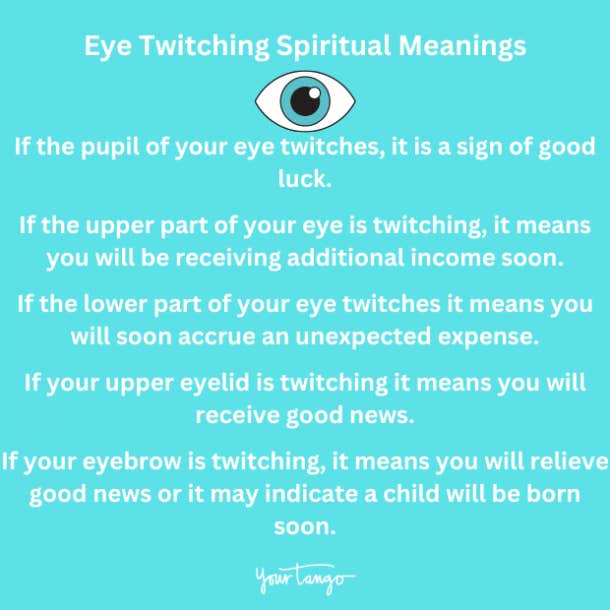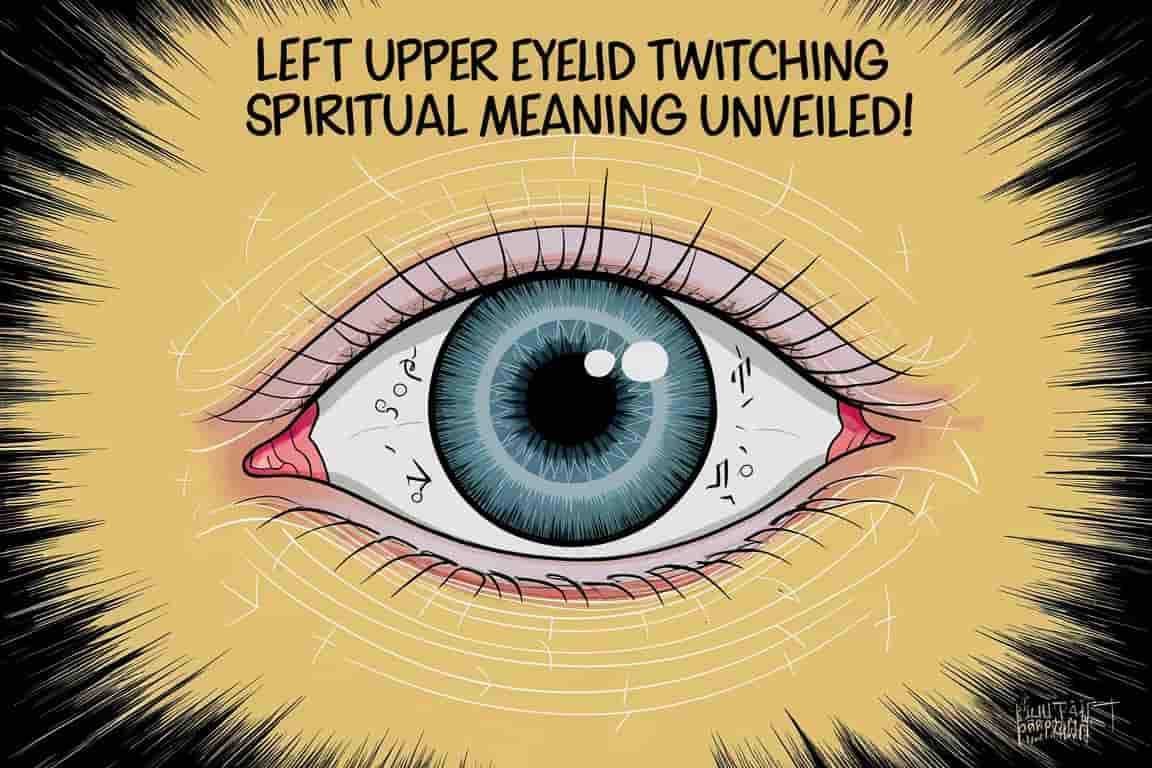Left Eye Twitching Good Or Bad: Uncover the Mystery
Left eye twitching can feel strange and leave you curious about its meaning. Is it a sign of something good or bad?
Eye twitching has intrigued people for centuries, with various cultures assigning it symbolic meanings. Some believe it’s a message from the universe, while others see it as a simple bodily reaction. Scientifically, it’s often linked to stress, fatigue, or even diet.
But does it always mean the same thing? In this blog, we’ll explore the possible reasons behind left eye twitching and whether it’s considered good or bad. Whether you’re looking for scientific facts or cultural interpretations, you’ll find answers to satisfy your curiosity. Let’s dive in to uncover what your twitching eye might be trying to tell you.
Causes Of Left Eye Twitching
Stress and fatigue may cause your left eye to twitch. Feeling tired can trigger this. Try to rest your eyes and mind.
Nutritional deficiencies are also to blame. Your body needs certain vitamins and minerals. Lack of them can make your eye twitch. Eat foods rich in vitamins, like fruits and veggies.
Cultural Beliefs And Superstitions
Many Asian cultures associate left eye twitching with luck and fortune. In China, a twitching left eye is often seen as a positive sign for men. For women, it may suggest unexpected challenges. Indian beliefs connect left eye twitching to omens, which vary for men and women. Women may experience good fortune, while men could face bad luck. These interpretations depend on the time of day and gender. People often consult astrologers to understand these signs.
Western cultures tend to view eye twitching as a medical issue. Stress, fatigue, or eye strain are common causes. Superstitions exist but are less common. Some believe left eye twitching predicts bad news. Others see it as a random event with no deeper meaning. Modern science focuses on physical explanations, such as muscle spasms. Unlike Eastern beliefs, Western views rarely involve luck or destiny.
Scientific Explanations
Left eye twitching can be linked to nerve reactions in the body. Sometimes, it happens due to a miscommunication between the brain and eye muscles. Tiny spasms occur without warning. These spasms are harmless but can feel annoying. Stress may trigger the nerve signals. Lack of sleep also plays a role in causing twitching.
Rare cases might indicate a neurological disorder. Disorders like Parkinson’s disease can cause repeated twitching. If twitching lasts for weeks, it is better to consult a doctor. Most cases are mild and resolve quickly.
Spending long hours on screens can strain your eyes. Overuse of digital devices can lead to twitching. Dryness or tiredness makes the muscles react. Poor lighting increases the strain on your eyes. This strain can trigger small muscle movements in your eyelids.
Taking breaks from screens helps reduce strain. Use proper lighting while working or reading. Keeping eyes hydrated with drops can be helpful. These simple steps often prevent twitching caused by eye strain.
Positive Meanings Of Left Eye Twitching
Some believe left eye twitching is a symbol of good luck. It can mean unexpected opportunities are coming. This belief is common in many cultures. People think it brings happiness or success. It’s seen as a sign of positive energy. Feeling hopeful is a natural reaction to it. Superstitions often connect body signs to fortune.
A twitching left eye may indicate good news is near. Some think it means a surprise is on the way. It could mean meeting someone special. Others see it as a sign of new beginnings. This belief varies across different traditions. It’s often seen as a message of change. People feel excited when they notice this.
Negative Associations
Some cultures believe left eye twitching brings bad news. It may be seen as a warning of upcoming trouble or problems. People in some regions link it to unlucky events. This idea has been passed down through generations.
It might cause fear or anxiety for those who believe it. While this is not backed by science, such beliefs remain strong. Superstitions can shape how people view twitching eyes.
Left eye twitching may reflect emotional stress or worries. When stressed, muscles can twitch, and this may include the eyes. Some people think it shows hidden sadness or inner struggles.
It may also remind someone to rest or relax. Stress-related twitching usually goes away when stress is reduced. Taking care of your feelings is important.

Credit: eyefeather.com
When To Seek Medical Attention
Left eye twitching that lasts for
If twitching comes with
Tips To Reduce Eye Twitching
High stress can make eye twitching worse. Try to relax daily. Practice deep breathing exercises for a few minutes. Spend time on activities that make you happy. Avoid overworking and take short breaks during tasks. Stress management is key to keeping your eyes calm.
Not sleeping enough can cause your eye to twitch. Aim for 7-8 hours of sleep each night. Maintain a consistent sleep schedule, even on weekends. Avoid screens before bedtime to relax your eyes. Create a peaceful sleeping environment by keeping your room dark and quiet. Better sleep can help reduce twitching over time.

Credit: www.allaboutvision.com
Balancing Science And Beliefs
People often see left eye twitching differently. Some think it’s good luck. Others feel it’s a bad sign. Cultures around the world have their own beliefs. They pass these stories down through generations. It’s important to honor these traditions.
Doctors look at eye twitching differently. They say it’s usually not serious. It could be tired eyes or stress. Sometimes, caffeine causes it. If it happens a lot, a doctor can help.
So, what should we think? It’s okay to believe old stories. But, we should also listen to medical advice. This way, we stay true to our roots. And we keep our health in check.

Credit: www.gibbonsfuneralhome.com
Conclusion
Left eye twitching can have various meanings based on culture and science. It might indicate stress, fatigue, or even good fortune, depending on beliefs. Paying attention to your body’s signals is important for overall health. If the twitching persists or worsens, consulting a doctor is a good idea.
Understanding the cause can help you take better care of yourself. Whether it’s a harmless sign or a health concern, staying informed is key. Always trust your instincts and seek advice when needed. Balance rest, nutrition, and mindfulness to keep your body and mind healthy.




